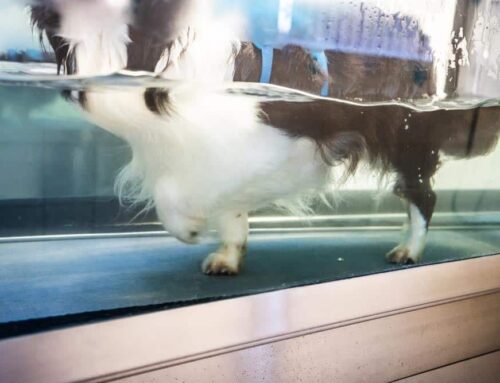Arthritis is not just a condition that affects humans; our furry companions can also suffer from this debilitating condition. Arthritis, also known as osteoarthritis, can cause pain, stiffness and decreased mobility in our beloved friends.
As responsible pet owners, it’s important for us to be aware of the signs and symptoms of arthritis in pets and take appropriate measures to manage their condition. In this article, we will explore how to identify and effectively manage this condition, enhancing their well-being and quality of life.
Understanding Arthritis in Pets
Arthritis is a degenerative joint disease that primarily affects the cartilage in the joints. Over time, the cartilage wears down, resulting in inflammation, pain and reduced mobility. While arthritis is commonly associated with older pets, it can also affect younger animals, especially those with genetic predispositions or previous joint injuries.
Recognising the Signs of Arthritis
Pets cannot directly communicate their pain to us, so it’s crucial to be observant and look for potential signs of arthritis. Here are common indicators that your pet may be suffering from arthritis:
- Limping or favouring certain limbs: If you notice your pet limping or showing reluctance to put weight on a particular leg, it could be a sign of joint pain.
- Stiffness and decreased mobility: Arthritic pets may struggle with movements they used to find easy, such as jumping onto furniture or climbing stairs.
- Reduced activity level: Pets with arthritis tend to become less active and may exhibit a decrease in their enthusiasm for walks, playtime or other physical activities.
- Changes in behaviour: Increased irritability, restlessness, or reluctance to be touched or handled can indicate pain associated with arthritis.
- Licking or biting at joints: Pets may try to alleviate their discomfort by excessively grooming or chewing at their sore joints.
Consulting a Veterinarian
While there is no cure for arthritis, there are several strategies you can implement to effectively manage your pet’s condition and alleviate their pain. Here are key approaches to consider:
Weight Management
Maintaining a healthy weight is crucial for arthritic pets, as excess weight puts additional strain on their joints. Work with your veterinarian to develop a balanced diet and exercise plan that supports your pet’s weight management goals.
Exercise And Physical Therapy
Regular, low-impact exercise can help strengthen muscles, improve joint flexibility and manage weight. Physical therapy techniques such as hydrotherapy or therapeutic exercises may also be beneficial.
Pain Management
Your veterinarian may prescribe pain medications or recommend supplements that can help reduce inflammation and alleviate pain in your pet’s joints. Follow their instructions carefully and monitor your pet for any potential side effects.
At Illawarra Animal Hospital we offer a new arthritis treatment which bypasses the filtration process of the kidneys and liver. This protects these vital organs and the gastrointestinal tract for your furry friend. Call us for more information about this treatment.
Dietary Supplements
Certain dietary supplements like glucosamine and chondroitin can help support joint health and reduce the progression of arthritis. Before giving any supplements, it is really important to consult your IAH vet to determine the most suitable supplements for your pet.
Creating a Comfortable Environment
Provide your pet with a warm and comfortable sleeping area, preferably with supportive bedding. Consider using ramps or stairs to help them access elevated surfaces more easily.
The Illawarra Animal Hospital: Caring for Your Pet’s Arthritis
At Illawarra Animal Hospital, we understand the impact arthritis can have on your pet’s well-being. Our dedicated team of veterinarians are here to provide compassionate care and effective management for pets with arthritis. With our expertise, we strive to improve your pet’s quality of life and ensure they receive high-quality treatment.





